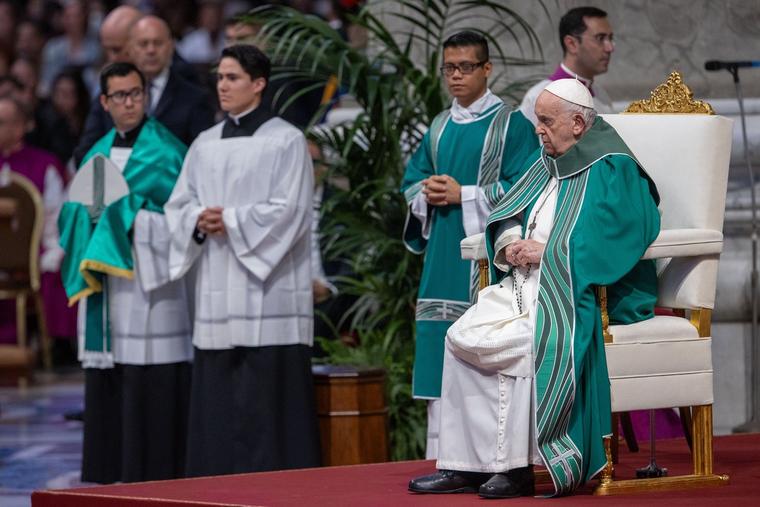- Feb 5, 2002
- 166,657
- 56,277
- Country
- United States
- Faith
- Catholic
- Marital Status
- Married
- Politics
- US-Others
COMMENTARY: Without explicit clarification, the synthesis document of the recent Synod on Synodality seems to teeter on a Protestant understanding of ministry, where all ministry flows from baptism, and a correspondingly Protestant ecclesiology, which is essentially baptismal and only secondarily Eucharistic, if at all.
On Oct. 28, the feast of the apostles Simon and Jude, the first session of the 16th Ordinary General Assembly of the Synod of Bishops released its synthesis (summary) report, “A Synodal Church in Mission.”
The document clearly states that it is “not a final document, but an instrument at the service of ongoing discernment.” It is intended to “orient reflection” regarding points on which “it is necessary to continue deepening our understanding pastorally, theologically, and canonically.” The invitation to theological deepening is especially prominent. Here, I hope to take up that invitation.
I will focus on a claim made about synodality and the synodal path itself, namely that it “constitutes a true act of further reception” of Vatican II, “implementing what the Council taught about the Church as Mystery and People of God, called to holiness.” The reference here is to Chapters 1 (“The Mystery of the Church”), 2 (“The People of God”) and 5 (“The Universal Call to Holiness”) of Lumen Gentium (LG). Synodality itself is described as “a mode of being Church that integrates communion, mission and participation.”
In other words, “synodality” is an ecclesiology, at least implicitly, a particular theology of the Church, which claims to be a development of Lumen Gentium.
Continued below.

 www.ncregister.com
www.ncregister.com
On Oct. 28, the feast of the apostles Simon and Jude, the first session of the 16th Ordinary General Assembly of the Synod of Bishops released its synthesis (summary) report, “A Synodal Church in Mission.”
The document clearly states that it is “not a final document, but an instrument at the service of ongoing discernment.” It is intended to “orient reflection” regarding points on which “it is necessary to continue deepening our understanding pastorally, theologically, and canonically.” The invitation to theological deepening is especially prominent. Here, I hope to take up that invitation.
I will focus on a claim made about synodality and the synodal path itself, namely that it “constitutes a true act of further reception” of Vatican II, “implementing what the Council taught about the Church as Mystery and People of God, called to holiness.” The reference here is to Chapters 1 (“The Mystery of the Church”), 2 (“The People of God”) and 5 (“The Universal Call to Holiness”) of Lumen Gentium (LG). Synodality itself is described as “a mode of being Church that integrates communion, mission and participation.”
In other words, “synodality” is an ecclesiology, at least implicitly, a particular theology of the Church, which claims to be a development of Lumen Gentium.
Continued below.

The Need for a Deeper Theology of Synodality
COMMENTARY: Without explicit clarification, the synthesis document of the recent Synod on Synodality seems to teeter on a Protestant understanding of ministry, where all ministry flows from baptism, and a correspondingly Protestant ecclesiology, which is essentially baptismal and only...
